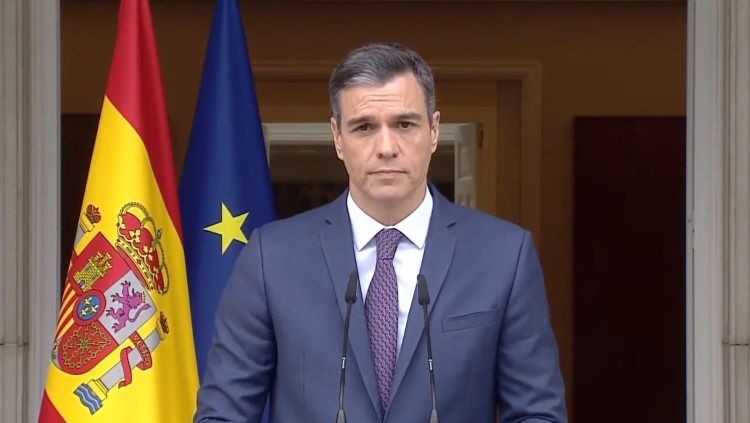Ángel Collado
PSOE’s unmitigated defeat by the People’s Party in the regional and municipal elections, in terms of votes and regional governments, places Pedro Sánchez in his weakest position within his party and the Presidency of the Government seven months before the general elections.
The head of the Executive accepted the challenge of the head of the opposition, Alberto Núñez Feijóo, to turn 28M into the first battle between the two and found himself with an electoral swing to the right that relegates the Socialists to a corner of regional power, with no other aspiration than to govern in coalition in four of the 17 regional governments.
The PSOE has failed in all the objectives it had set itself for the election. Socialist have not escaped paying for Sánchez’s attrition and the mortgages with their populist and pro-independence partners, and they will lose most of the regional executives at stake, both those they considered their fiefdoms and those shared with the rest of the left-wing parties.
The PP, in addition to maintaining Madrid (region and city council of the capital, now with an absolute majority) and Murcia, has now won the most important autonomous region left to the PSOE: the Valencian Community. The Popular Party has also gained an absolute majority in La Rioja, while by negotiating with Vox they have the governments of the Balearic Islands and Extremadura, another former Socialist fiefdom, within reach.
The only autonomous community that remains in the hands of the PSOE with an absolute majority is Castilla-La Mancha, the territory of Emiliano García-Page. He is the wayward baron of Sánchez’s party, who will remain in power thanks to his specific campaign to dissociate himself from the president of the government and his alliances with the extreme left, especially Bildu, the political heirs of ETA.
In the case of the municipal elections, held throughout Spain, the Socialists lost to the Popular candidates by almost three points in the general vote count, when four years ago the difference was the other way round.
At the local level, the PSOE was happy to maintain its positions, especially in the Andalusian capital, Seville, and to win in Barcelona, but the party’s general disaster gives the PP almost absolute hegemony in the region, with seven of the eight provincial capitals in the region, including Seville. And in the Catalan capital, the PSC is no better than second place.
The change of electoral cycle with straight consequences in national politics is especially evident in Andalusia, the PSOE’s first and oldest electoral fiefdom. Spain’s most populous region, the one that provides the most MPs to the Congress, is the biggest source of votes for the PSOE, which already controls the regional government and from now on almost all the main town councils as well as the provincial councils.
Another problem for the stability of Sánchez’s coalition government is the double failure at the ballot box of his left-wing populist partners. The party that brought them together four years ago, the original Podemos, founded and still controlled by Pablo Iglesias, is disappearing from most regional parliaments. This decline is particularly significant, with the appearance of a terminal phase in the case of Madrid, Spain’s largest provincial constituency.
The other sector of the populists, the extreme left, led by the vice-president of the government, Yolanda Díaz, with Sánchez’s backing under the Sumar brand, also came out of the 28M in a bad way. The local parties from Madrid, the Valencian Community and Barcelona that backed Sumar and competed in the elections also lost power or ceded positions in the corresponding institutions.
28M elections put Alberto Núñez Feijóo in the best possible position to win the general elections at the end of the year. Little more than a year after becoming president of the PP and without a seat in Congress, the head of the opposition has scored the goal of having given a national dimension to the regional and local elections to his own advantage.
The dependence on future regional pacts with Vox will now become the main problem that Feijóo will have to deal with in his race for the presidency of the Government and the veto that Sánchez will try to exploit by linking him to the extreme right.







